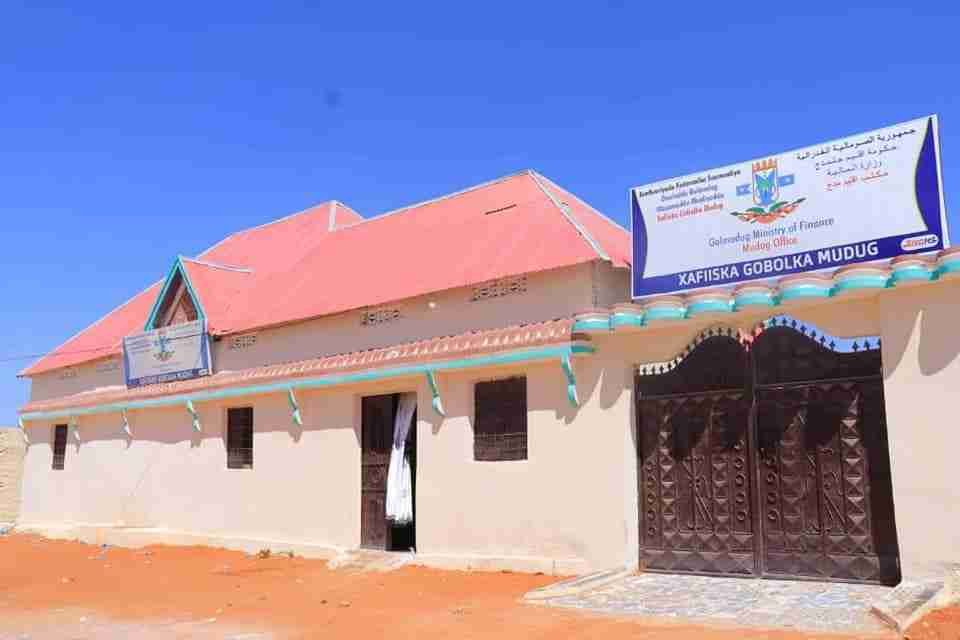Somali Public Agenda
November 15, 2023
Governance Briefs
Somali Public Agenda
November 15, 2023

Decentralization has been emerging as a policy issue in Somalia since 2012. However, it has not been a dominant concern, in comparison to other problems that have overwhelmed policy forums of the executive and legislative branches in both the Federal Government of Somalia (FGS) and the Federal Member States (FMS). One expectation from the federal arrangement was that power would be decentralized to lower levels to enable local communities to effectively participate in deciding matters of their particular concerns, including devising local-level policies that reflect their immediate needs, such as the collecting local taxes and provision of essential services. However, these expectations remain an unobtained dream as new and long-standing local governments in FMSs still don’t engage in collecting taxes that are, in theory, set out in their respective local government acts. Instead, only the Finance Ministries of the FMSs collect revenue, and this rendered local governments largely nominal structures that are unable to respond to the needs of their constituencies. This governance brief sheds light on the state of fiscal decentralization in Puntland, Galmudug, and Benadir. The brief specifically analyzes the budgets they operate; the financial systems they use for collecting and dispensing expenditure; and whether there are fiscal transfers from state governments to local governments. The brief also highlights key obstacles to fiscal decentralization in local government. Lastly, the brief recommends, among other things, that FMSs provide fiscal transfers to local governments to be able to deliver some services to their population and set deadlines for the devolution of fiscal powers to local governments to collect taxes and translate these into services.
Maamul daadejinta ayaa Soomaaliya siyaasad ahayd tan iyo sanadkii 2012. Sikastaba ha ahaatee, ma ahayn baahi weyn, marka loo eego dhibaatooyinka kale ee hareeyay golayaasha siyaasadda ee fulinta iyo sharci dejinta ee dowladda federaalka iyo dowlad-goboleedyada. Hal arrin oo laga filayey nidaamka federaalka ayaa ahayd in awoodda loo daadejin doono heerka dowladaha hoose si ay bulshada uga qeyb qaataan go’aaminta arrimaha khuseeya, oo ay kamid yihiin sameynta siyaasado heer deegaan ah oo ka turjumaya baahiyahooda degdegga ah, sida uruurinta canshuuraha iyo bixinta adeegyada muhiimka ah. Sika taba ha ahaatee, arrimahan ayaa weli ah himilooyin aan la gaarin maadaama dowladaha hoose ee dowlad-goboleedyada aysan weli ka shaqeyn uruurinta canshuuraha lagu qeexay xeerarka dowladaha hoose. Taas beddelkeeda, keliya Wasaaradaha Maaliyadda ee dowlad-goboleedyada ayaa uruuriya dakhliga, taasina waxa ay keentay in dowladaha hoose ay noqdaan qaab-dhismeedyo magac-u-yaal ah oo aan awoodin in ay ka jawaabaan baahiyaha deegaannadooda ka jira. Faalladan kooban waxa ay iftiimineysaa xaaladda daadejinta maaliyadda ee Puntland, Galmudug, iyo Banaadir. Faalladan waxa ay si gaar ah u falanqeyneysaa miisaaniyadda ay ku shaqeeyaan; nidaamyada maaliyadeed ee ay u isticmaalaan uruurinta dakhliga iyo bixinta kharashaadka; iyo haddii ay jiraan wareejin maaliyadeed ee dowlad goboleedka oo loo wareejinayo dowladaha hoose. Faallada waxa ay sidoo kale iftiimineysaa caqabadaha ugu waaweyn ee hortaagan u daadejinta maaliyadda ee dowladaha hoose. Ugu dambeyntii, faallada waxa ay soo jeedineysaa, in dowlad-goboeedyadu ay maaliyadda u wareejiyaan dowladaha hoose si ay u awoodaan in ay shacabkooda gaarsiiyaan adeegyada qaar, islamarkaana ay u qabtaan wakhti kama dambeys ah oo ay awoodaha maaliyadeed ugu daadejinayaan dowladaha hoose si ay canshuuraha u uruuriyaan adeegyana u bixiyaan.
Somali Public Agenda (SPA) is a non-profit, non-partisan, and independent public policy and administration research and action organization based in Mogadishu. It aims to advance understanding and improvement of public policy and services in Somalia through evidence-based research and analysis, dialogue, policy and service design, and training.
Stay updated on governance and public services in Somalia!